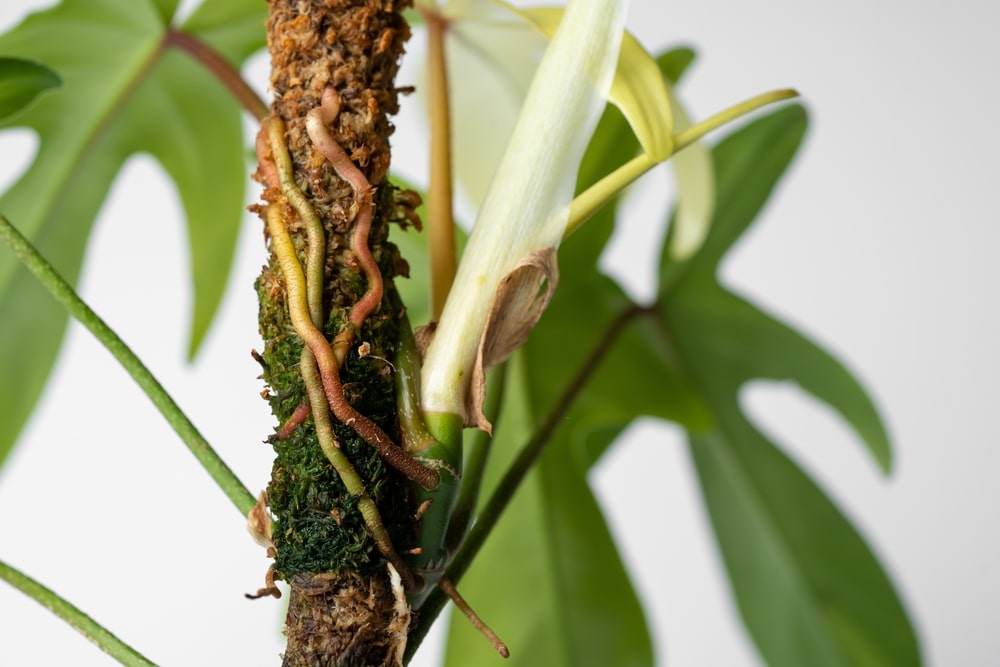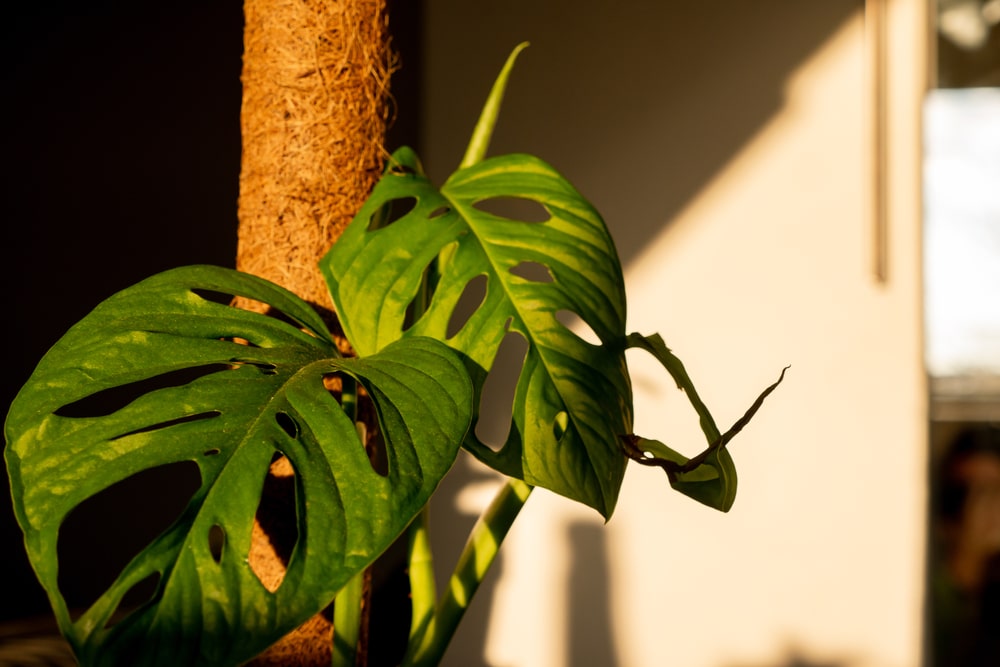Many different poles can be placed in pots to encourage climbing plants and vines to grow. Two of the most common are moss poles and coir poles. Both moss and coir poles are great for growing plants indoors or outside in your garden, but which is best for your plant? This article will compare a moss pole vs coir pole to help you decide.
Moss Pole vs. Coir Pole: Similarities
Moss poles and coir poles are beneficial for supporting plants that like to climb, produce vines or have aerial roots. They can be used in pots or hanging baskets or used outdoors.
Both moss and coir poles are very easy to use; they don’t take up much space and can be used in small yards or on balconies to encourage plants to grow vertically.
Moss Pole vs. Coir Pole: Differences
One of the main differences between these two types of support poles is the materials they are made from. Moss poles are made from natural materials such as peat moss or sphagnum moss, while coir poles are typically made from coconut coir.
Coir poles are biodegradable and more eco-friendly than moss poles. Moss poles may contain chemicals and preservatives and often have a metal or plastic stake to help hold the pole in place. They are, therefore not fully biodegradable and less environmentally friendly.
Another difference is that moss poles are typically lighter and more flexible than coir poles, while coir poles tend to be sturdier and stronger.
The benefits of moss poles
One of the biggest benefits of using a moss pole over a coir pole is that it can absorb water easily, making them ideal for use with plants that need high levels of moisture or humidity. They can also help to provide plants with aerial roots with additional nutrients.
In addition, moss poles are often less expensive than coir poles, making them a more budget-friendly option for gardeners on a tight budget.
The benefits of coir poles
Coir poles have many advantages as well. They are typically more sturdy and durable than moss poles, making them better suited for plants that need strong support to grow.
Coir poles are also more resistant to rot and decay, which means they can last longer than moss poles in outdoor conditions. Coir poles are the best choice for outdoor plants as they can withstand harsh weather conditions.
Coconut coir is an eco-friendly material that’s sustainable and doesn’t contain any harmful chemicals that will affect your plant.
Conclusion
Ultimately, the choice between a moss pole vs coir pole depends on your individual needs and preferences. If you have a plant that requires high moisture levels or prefer a budget-friendly option, a moss pole may be the best choice for you.
However, coir poles may be the better option if you are looking for a sturdier and more durable pole for your plants. The most important thing is to choose a pole that works well with your particular plant and gives it the support it needs to thrive.

